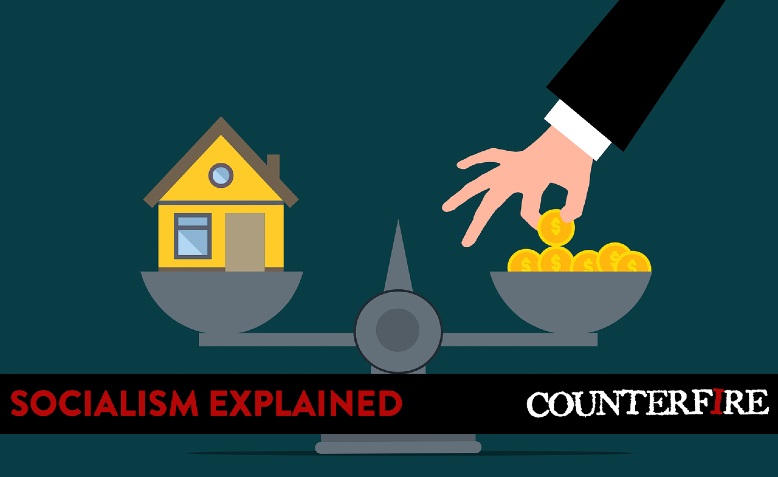 Photo: Pixabay
Photo: Pixabay
As house prices continue to rise amid a wider cost-of-living crisis, Reuben Bard-Rosenberg and Dominic Alexander explain how the housing crisis is rooted in the logic of the capitalist system
Housing has been a marked problem in capitalist society since the industrial revolution. In the nineteenth century, workers were condemned to poorly built ‘back-to-backs’, to single rooms for whole families, and even to living in flood prone coal-cellars beneath terraces. The development of council housing did something to ease these problems, and set some limits on exploitation by private landlords. The dismantling of council housing is therefore one major factor in the return to Victorian levels of crowding in parts of London, for example.
This historic pattern reveals the problem also of the typical explanation for the cost of housing, which is ‘supply and demand’. This golden rule of the market just does not operate in the case of housing, where most people face a range of constraints about proximity to jobs and services, and are subject to the social power of employers and landlords. Moreover, as Marx pointed out for market relations in general, at the point of equilibrium, the ‘law’ of supply and demand explains nothing about price.
‘Supply and demand’ doesn’t operate as the driving factor in housing for a variety of reasons. Firstly, the demand side is a social need with significant constraints, but the supply is determined by the interests of capital. Housing isn’t necessarily made available for consumption, in the way that food is, for example. It can be, and increasingly is, used as a capital investment, without regard for its use value as a shelter for people. In recent decades, when profitable investment has been increasingly scarce worldwide, putting money into real estate is a safe way to store surplus capital. Its social use is irrelevant, and is pushed aside.
For governments in the neoliberal era, the demands of capital outweigh the need for workers to have a place in which to live. This explains much about how policy responds to the increasing unaffordability of housing. The ‘Help to Buy’ scheme is only of use to very well paid professionals, who need to be kept on the side of capital. Its real purpose, however, is to help financial institutions that enable the ‘property bubble’ to sustain itself and expand.
During both the crash of 2008 and the pandemic, the London housing market wobbled a little and then prices kept on moving up. This is not an accident. The point of ‘Help to Buy’ was to sustain house prices in a crisis with a big injection of government backed finance. The government has a policy of not allowing house prices to drop in those core real-estate markets – such as London – which account for the majority of national real-estate wealth.
Whilst the government’s permanent high-price policy benefits the buy-to-let investor class, influential within its parliamentary party, this is first and foremost about the banks. A huge amount of debt in the banking system is secured against real estate. That is to say, the key security the bank has if their debtors don’t pay, is that they get to grab the property that the money was borrowed to buy. If real-estate prices fall, the banks face being unable to recoup what they lent, and the balance sheets of financial institutions begin to turn nasty. And to avert this we have a series of policies that amount to Keynesianism for Bankers.
This isn’t just a question of London, or the policies of British governments, however; it is a world-wide phenomenon that in centres of capital, where real estate was already relatively expensive, it has become inflated to a point that it becomes a flashpoint in the crisis of the whole system, as became evident in 2008. This is due to the enormous overaccumulation of capital in a long period since the 1960s of falling rates of profit. It is further due to the tendency for capitalism to centralise in certain regions, leaving others adrift. After all, property prices in post-industrial towns and cities plummet as wealth concentrates in the financial hubs of different countries.
For decades it’s been felt instinctively that house prices in the centres where jobs are more abundant can’t simply keep on rising beyond what people can afford. Within this whole context, the often American-imported rhetoric about ‘gentrification’ can be a political cul-de-sac. The tendency here is to frame society – and real estate in particular – as a jostling for position amongst competing tribes of wage earners. People from Peckham, we are told, can’t afford to live there ‘because the hipsters have moved in’. This renders invisible the institutions, and forms of money power that truly dominate our lives. If we want housing justice, we need to turn our fire not just on the landlords and the banks, but on the logic of the system that prefers the good of capital to social need. We need to turn against the politics that makes profitability a non-negotiable fact of life.
Fund the fightback
We urgently need stronger socialist organisation to push for the widest possible resistance and put the case for change. Please donate generously to this year’s Counterfire appeal and help us meet our £25,000 target as fast as possible.

